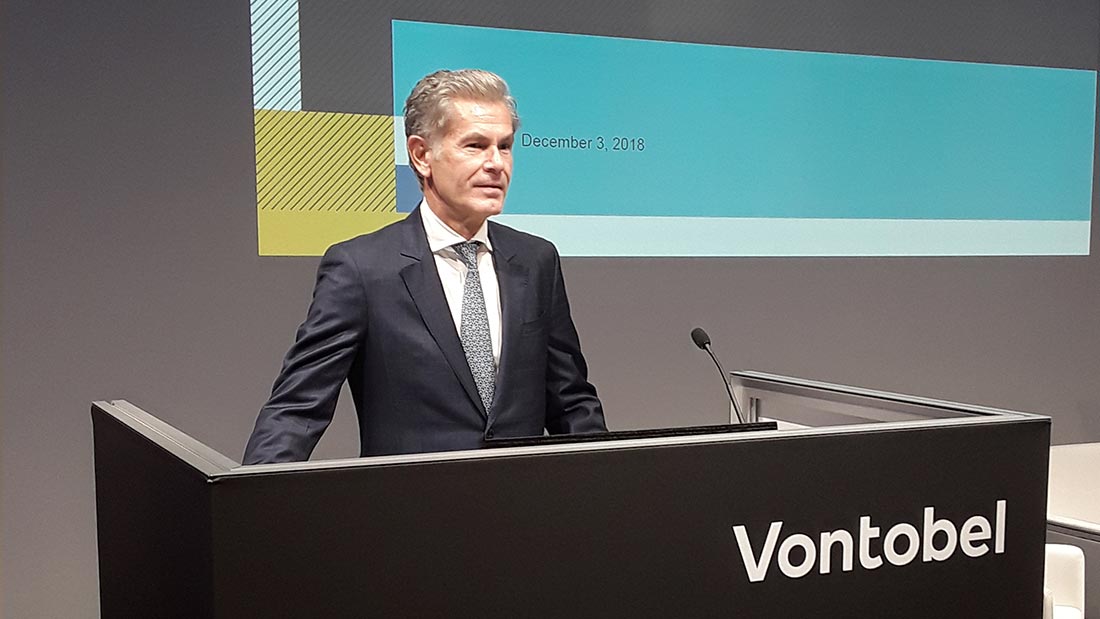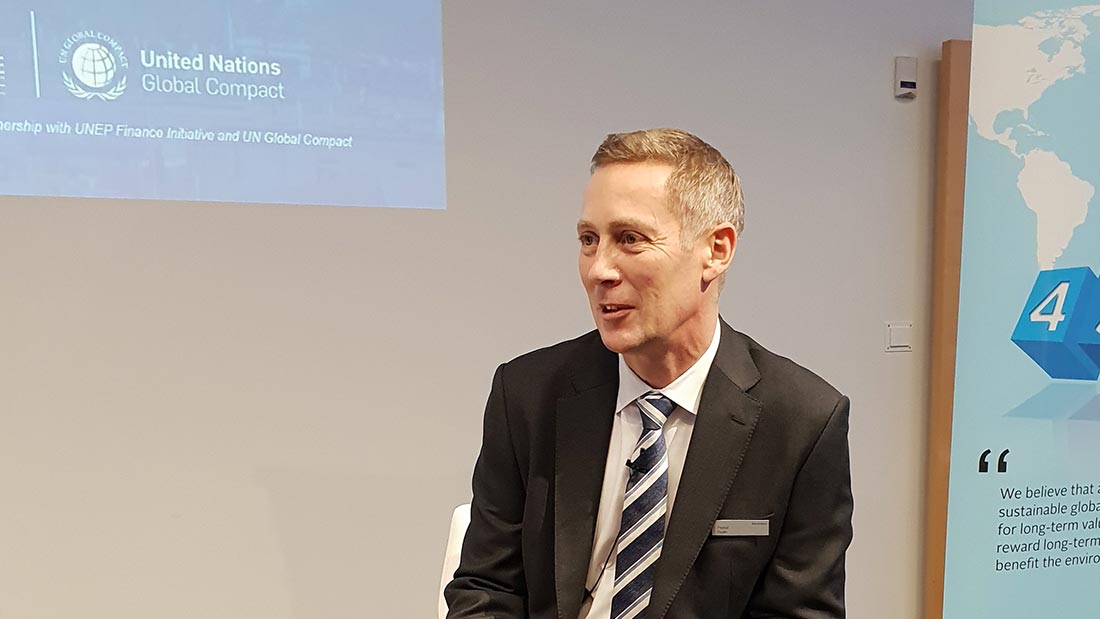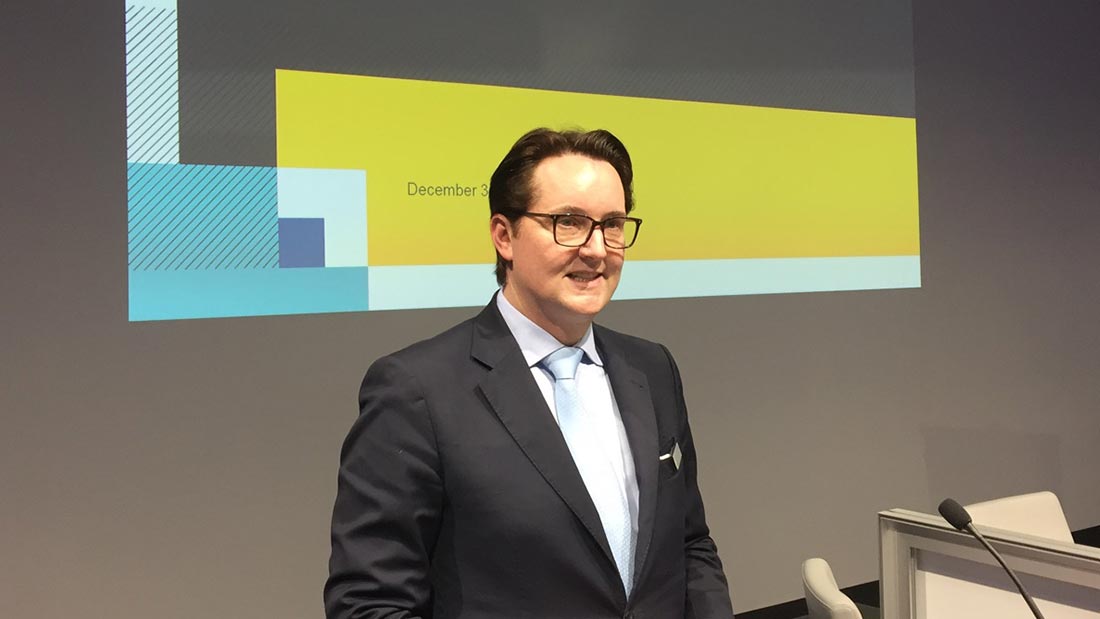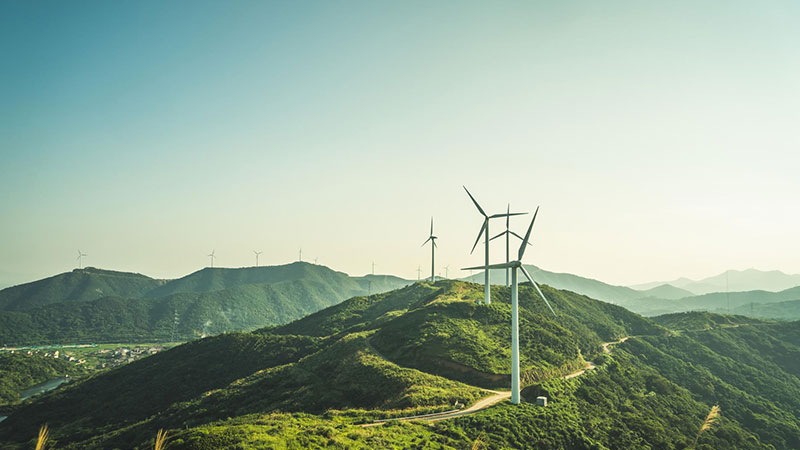 Axel Schwarzer, Head of Vontobel Asset Management
Axel Schwarzer, Head of Vontobel Asset Management
Opening the forum, Dustin Neuneyer, Head of Continental Europe, PRI, emphasized the urgency of the situation: In 2018, global carbon emissions have reached an all-time high. Afterwards, Axel Schwarzer, Head of Vontobel Asset Management, took to the microphone: "Climate change is no fake news for us". More and more institutional and private investors are realizing this and seizing the opportunities it is creating. Since 2016, ESG investments (ESG: Environmental, Social, and Governance) have increased worldwide by almost 50%.
Investment strategies for a carbon-neutral future
In order to achieve the global warming goal of maximum 1.5 degrees, global emissions of carbon dioxide (CO₂) must fall from 2010 to 2030 by 45 percent and drop to zero net by 2050. With this introduction, Sagarika Chatterjee, Director of Climate Change, PRI, addressed participants in the first panel discussion and asked what low-carbon strategy they would follow.
Claudia Bolli, Head Responsible Investing, Swiss Re, indicated that Swiss Re is following a holistic investment approach. This goes beyond carbon emissions as a single criterion. She explained that Swiss Re is systematically integrating ESG criteria into the investment process, whilst also implementing ESG benchmarks.
Finding high-fliers among the low-carbon strategies
 Pascal Dudle, Head of Global Trend Investing
Pascal Dudle, Head of Global Trend Investing
Pascal Dudle, Head of Global Trend Investing, Vontobel Asset Management, also criticized the classic measurement of the carbon footprint. It usually only takes into account direct emissions during production, neglecting, however, the emissions saved over the lifetime of energy-efficient products. Producing a triple-glazed window, for example, requires more energy than producing just a single glazed one. Due to better insulation, however, triple-glazing subsequently saves much more energy and therefore carbon emissions. Dudle also emphasized how important the choice of the sector is. In carbon-intensive areas, such as the building, transport, industrial, or energy sectors, the transition to a carbon-neutral economy offers great opportunities for innovative companies with climate-friendly products and services.
On the up: assess climate-related financial risks
Edward Baker, Senior Policy Adviser – Climate and Energy Transition, PRI, had a success story to report. More and more investors and companies are publishing information concerning climate-related financial risks in accordance with the guidelines of the Task Force on Climate-related Financial Disclosures (TCFD). This not only helps investors and other interest groups make sound investment decisions, but it also helps the companies themselves understand these risks and actively minimize them.
Make an impact: Active Ownership and Climate Action 100+
Climate Action 100+ is an initiative started by institutional investors. They want companies they invest in to work towards reducing their CO₂ emissions. This approach is also known as active ownership. In other words, it concerns using ownership and voting rights to harness positive change.
Participants in the second panel discussion also talked about active ownership: Dr. Agnes Neher, Sustainable Investment Analyst, Bank J. Safra Sarasin; Christopher Greenwald, Head of Sustainable and Impact Investing Research and Stewardship, UBS Asset Management; and Vincent Kaufmann, Director of the Ethos Foundation. They enter into dialog with companies in order to motivate them toward more sustainability and to expose climate-related risks. In so doing, they make companies aware of TCFD principles, provide them with information about benchmark values, and encourage them to carry out climate scenario analyses to reveal weaknesses in their sustainability strategy.
Climate protection, yes, but not at the expense of the weakest
The requirement to massively reduce CO₂ emissions will trigger a structural change in many industries. On the one hand, it opens up new possibilities for adding value and new, clean jobs. On the other hand, there will be social challenges in the transition period. So, for example, people who are losing their jobs in unsustainable industries need new perspectives.
ESG criteria are a must-have for the younger generation
 Lars Kalbreier, CIO, Vontobel Wealth Management
Lars Kalbreier, CIO, Vontobel Wealth Management
At the end of the event, Lars Kalbreier, CIO, Vontobel Wealth Management, thanked PRI for all the new ideas he was able to take away for wealth management. He observed that for the younger generation, when it comes to making an investment, ESG criteria is not a nice-to-have but a must-have. And for the financial service providers in the room, he gave them the following advice: "Don’t just use the ESG criteria. Walk the talk." The Vontobel present, namely the Upcycling shopper bag, produced from a Vontobel megaposter, was also made with this in mind.
The mega poster used in Vontobel's new image campaign has been transformed into 500 shopping bags.
The Principles for Responsible Investment (PRI) – an initiative launched by the United Nations – now has around 2,000 signatories globally, primarily from the financial world. In 2018, Vontobel received an above-average score with its sustainable investment strategies. A signatory to the PRI since 2010, Vontobel outperformed the benchmark in six of the seven modules assessed in this year’s reporting.













